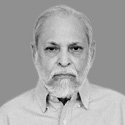Sehat card not for all
According to this year’s Economic Survey, Pakistan is spending far less on healthcare than the benchmark set by the World Health Organization (WHO). The country is spending 1.2% of its GDP on healthcare against the WHO-recommended figure of 5%. Further breakdown is even more disturbing: per capita, an annual sum of $14 is spent by the public sector, whereas the citizens themselves have to spend $28. Such low government spending results in around 60 percent out-of-pocket expenditures.
Naturally, in a country where around half the population lives in poverty, such a huge out-of-pocket spending by the poor is sure to spell disaster. In a country like ours, ‘heath card for all’, is the answer. While inaugurating the health card, the prime minister said, “The universal health coverage would … protect the poor against economic fallout.”
The card has so far been introduced in Khyber Pakhtunkwan (KPK) and Punjab while the Balochistan cabinet has also approved its implementation. Sindh however, appears to be in no mood to extend such facilities to the poor. It is the only province which has opted out of the Sehat Sahulat Programme, primarily for political reasons, which is unfortunate.
Under the programme, free services of up to a Rs. 1 million for eligible families per year are going to be provided. Services to the beneficiaries are provided through a panel of public and private hospitals under contract across the province. All secondary care diseases and tertiary care diseases like accident and emergency, diabetes, kidney diseases including dialysis and kidney transplant, Hepatitis B and C, all type of cancers and heart and vascular diseases are covered under the programme.
Commenting on the ‘Sehat Insaf Card’, the Sindh government spokesperson Murtaza Wahab remarked, “Sindh government doesn’t believe in issuing ‘Sehat Cards’, but every citizen should have access to health facilities.” Such a remark, uttered without any rhyme or reason, from the rulers of a province categorised as the second poorest after Balochistan, sounds ridiculous. Nearly 75% of the population in rural areas of Sindh is now living in abject poverty.
As a goodwill gesture, the Federal Government has distributed health cards in Tharparkar and Umerkot districts of Sindh. To distribute the card throughout the province, the Sindh Government has to bear the major expenses while the center will make partial payments. Accordingly, the Federal Government made an offer to the Sindh government which was turned down. It is unfair that the people of Sindh are being deprived of these health benefits, when people all over Pakistan are receiving them.
The introduction of health cards in Sindh would have been quite beneficial for those living in remote areas of Sindh, because the card also covers a patient’s transport costs and is linked with the NADRA database. It also offers inter-district and inter-provincial portability. This means that people can easily seek treatment wherever they want.
But what can be said about remote villages, when the situation in Karachi, Pakistan’s largest city and the Sindh capital, is deplorable. There are now more than 600 slums in Karachi and approximately 65% of the population lives in a slum. People living in these settlements cannot afford to make ends meet. For them, there is no question of paying their own health bills. Under such circumstances, the Sindh Government’s indifferent attitude towards the health care of its population is indeed shameful.
Managing health conditions for a middle class, or for that matter, even an upper middle class Karachiite is pretty difficult. According to a report prepared by the International Financial Corporation’s Bank Advisory Services Team in partnership with the State Bank of Pakistan, places such as Nazimabad and Gulshan-e-Iqbal alone have 100 and 80 hospitals respectively. These hospitals are shamelessly fleecing patients through different hidden charges and unnecessary medical treatments. The medicines prescribed to the patients are not only expensive, but their prices grossly differ from hospital to hospital.
Indeed, healthcare services cannot be treated like other services which are choice-based rather than need-based. The situation in Karachi is so bad that a lot of patients prefer travelling to India for better treatment at a lower cost. According to a report, 15 to 20% of all foreign tourists coming to India annually are Pakistanis. If India starts issuing medical visas in three to four days as compared to the 40 days it takes for a tourist visa, the numbers of Pakistani patients will most likely increase. Though the cost of hospitalization in India is much less than Pakistan, the government of India considers that the price patients are paying for medical services in private hospitals are still very high.
Improving human health and providing access to affordable, high quality healthcare should be the key concern of any government. It is not only an ethical and social imperative; it is also a necessary ingredient for the sustainable long-term development of a healthy and vibrant society. Good health improves people’s wellbeing. As such, the PPP government should not to stick to a firm ‘no’ to the Sehat Insaf Card. They should reconsider the decision and introduce health cards for the general public in Sindh, like other provinces of the country.
The writer is Sub-Editor, Bol News










